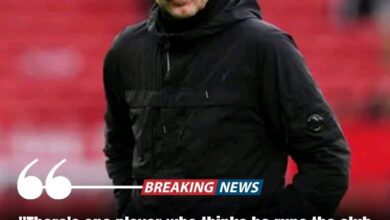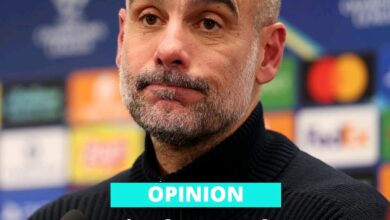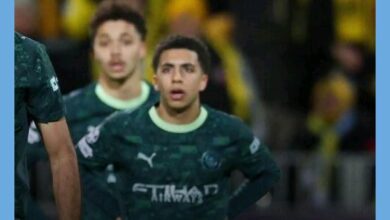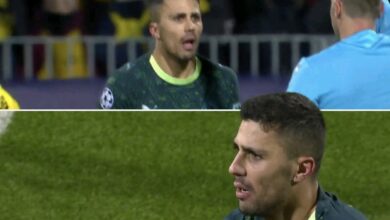The Dark Arts Headmaster Has Returned

In recent years, Arsenal’s footballing philosophy under Mikel Arteta has undergone significant changes. The Spanish manager, once regarded as a young coach with much to prove, has instilled a more structured and disciplined playing style into the Gunners, drawing on various influences and strategies. One of the most controversial elements of Arteta’s tactics has been his occasional use of the so-called “dark arts” — a term often used to describe unsporting or borderline unsporting tactics employed to gain an advantage during a match. This aspect of Arsenal’s play has sparked debate, especially as the team continues to challenge the dominance of Manchester City in the Premier League.
The “dark arts” in football often involve time-wasting, feigning injury, manipulating referees, and using gamesmanship to disrupt the flow of the game. While some fans and pundits see these tactics as an essential part of winning in modern football, others view them as a betrayal of the sport’s integrity. Arsenal’s recent performances, notably their encounters with top teams such as Manchester City, have raised questions about whether Arteta’s Arsenal has begun to adopt such tactics more regularly.
Mikel Arteta took over the managerial reins at Arsenal in December 2019, and from the outset, he set about rebuilding a team that had been underperforming for years. Arteta’s early work focused on instilling a solid defensive structure, discipline, and tactical intelligence. His high-pressing game, quick transitions, and possession-based approach soon earned praise, especially as Arsenal won the FA Cup in his first season at the helm.
However, it wasn’t just his tactical setup that caught the eye; Arteta also began to implement certain strategies that mirrored the more controversial aspects of other successful managers, particularly José Mourinho. The term “dark arts” became a buzzword in the footballing world after Mourinho’s success at Chelsea, Inter Milan, and later Manchester United and Tottenham Hotspur. Mourinho’s ability to use mind games, provoke referees, and slow the game down to disrupt opposition momentum became synonymous with his tactical approach. Arteta, who spent time learning under Guardiola at Manchester City, seemed to take some of these ideas on board.
Arsenal’s play under Arteta began to show subtle changes as the team started to implement more streetwise tactics. During some key matches in the Premier League, particularly against the likes of Manchester City, Arteta’s side were accused of employing time-wasting tactics and managing game flow in ways that bordered on the cynical. Key players like Gabriel Magalhães, Martin Ødegaard, and Bukayo Saka have been involved in moments that have raised eyebrows, particularly regarding their stoppages for supposed injuries or taking time to restart play.
One match that stands out is Arsenal’s 2-2 draw against Manchester City at the Etihad in September 2024. City stars Bernardo Silva and John Stones openly complained about Arsenal’s “time-wasting” and the “dirty” tactics used throughout the game. The game was intense, and with a key red card for Leandro Trossard late in the first half, Arsenal’s defensive resolve was tested. Despite this, Arteta’s side managed to frustrate City’s attacking flow, often resorting to delaying tactics or taking longer to take free kicks, throw-ins, and goal kicks. Some fans and pundits viewed this as a sign of Arteta’s cleverness, while others considered it unsporting.
After the match, Arteta openly admitted that he had been influenced by José Mourinho’s methods. While Arteta emphasized that his aim was always to win fairly, he acknowledged that certain tactics, like slowing the game down or drawing attention to decisions, were part of the competitive nature of modern football. Arsenal’s results had improved as a consequence, and in a league where every point is crucial, Arteta seemed to believe that such tactics were necessary.
The use of the “dark arts” by Arsenal has been a divisive topic among fans. A recent survey conducted by Football.London revealed that a significant majority of supporters, 68 percent, thought that Arsenal’s use of such tactics was perfectly fine. The respondents argued that, in the cutthroat world of elite football, these strategies were simply a part of the game. Arsenal had shown an ability to outsmart opponents, particularly in key fixtures against teams like Aston Villa, Tottenham Hotspur, and Manchester City, where their streetwise approach helped secure vital points. For these fans, winning at all costs — including the use of gamesmanship — was seen as a fair trade-off for success.
However, not everyone was on board with this approach. A considerable 32 percent of the voters expressed concerns about Arsenal’s reliance on these tactics. Some 21 percent of respondents felt that while the dark arts were effective, they were uncomfortable with their use and would prefer to see a more straightforward approach. Another 8 percent voiced their opposition to Arsenal’s adoption of such methods altogether, while 3 percent even argued that referees should take a firmer stance to clamp down on time-wasting and gamesmanship.
While this survey shows that the majority of Arsenal supporters are content with Arteta’s methods, it does raise an important question: How sustainable are these tactics? If Arsenal continues to rely on these methods without consistently achieving success, will they lose the support of their fanbase? After all, fans have long been proud of Arsenal’s attacking football and the club’s emphasis on youth development. If the dark arts begin to overshadow the team’s positive aspects, it could create a rift between the management and the supporters
José Mourinho has long been seen as the master of the dark arts in modern football. His teams were notorious for disrupting the flow of games, using physicality and psychological tactics to unsettle opponents. Mourinho’s success at Chelsea, Inter Milan, and Porto — where he won domestic and international titles — was built on a combination of tactical discipline, defensive organization, and an ability to frustrate the opposition.
However, as time went on, Mourinho’s methods became more predictable, and his reputation began to wane. His time at Manchester United, Tottenham Hotspur, and Roma has been marked by frustrations over the negative aspects of his tactics. His defensive-minded football and reliance on gamesmanship, while effective in some cases, did not always yield the desired results, and fan discontent grew when results did not match expectations. This has served as a cautionary tale for Arteta.
Arteta, while learning from Mourinho’s methods, must balance the use of these strategies with the long-term development of Arsenal as a team. The Gunners have built a reputation over the years for playing attractive, attacking football, and Arteta’s vision for the team is to combine that style with resilience and tactical intelligence. If the dark arts become a crutch rather than a supplementary tool, it could lead to dissatisfaction among supporters who expect more from their team.
While Arteta’s Arsenal has been impressive at times, the team’s use of dark arts could become a double-edged sword. On the one hand, these tactics have helped the team gain vital points in the race for the Premier League title, especially against direct rivals like Manchester City and Tottenham. On the other hand, they could be seen as undermining the club’s footballing philosophy and its identity. Fans who have grown accustomed to the free-flowing, attacking football of the Wenger era might feel uncomfortable with Arsenal adopting a more cynical approach to securing victories.
Moreover, the nature of the modern football world means that tactics like time-wasting and manipulating referees can quickly lose their effectiveness. Referees are becoming increasingly aware of such methods, and with the rise of VAR, it has become harder for teams to get away with gamesmanship. If Arsenal’s tactics fail to lead to the desired results, or if the team is penalized for excessive time-wasting or similar behavior, the backlash could be severe.
Another factor to consider is the pressure Arteta is under. As manager of a club with a rich history and high expectations, Arteta knows that his tenure will be judged on silverware. Success in the Premier League and European competitions is essential to securing his legacy. If the dark arts help Arteta win trophies, the fans might be more willing to overlook the less savory aspects of his tactical approach. However, if the tactics fail to yield results, the situation could quickly become untenable.
Mikel Arteta’s Arsenal has undergone a significant tactical evolution since he took over as manager, and the team’s use of dark arts is a reflection of the competitive nature of modern football. While these methods have proven effective in certain situations, they are not without their risks. Arsenal fans have generally embraced the team’s resilience and streetwise approach, but there remains a significant portion of the fanbase that prefers a more traditional, attacking style of play.
Arteta must strike a delicate balance between using these tactical tricks and maintaining Arsenal’s identity as a club that values footballing integrity and attacking flair. If the dark arts become too dominant in Arsenal’s approach, they could alienate fans who expect more from the team. The key will be whether Arteta can continue to win with these tactics without allowing them to overshadow the positive aspects of Arsenal’s play.
In the end, success will be the ultimate measure of whether Arsenal’s dark arts approach is sustainable. If Arteta delivers trophies, particularly the Premier League title, he will have the mandate to continue with his methods. If not, the dark arts may quickly lose their appeal, and Arsenal will need to return to the more traditional values that have defined the club for decades.















